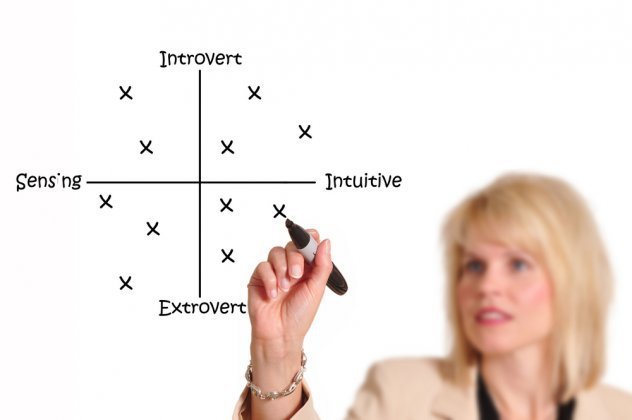Introvert Vs. Extrovert: What Are The Main Differences?
Many people wonder what personality type they would be classified. People who identify as either an introvert or an extrovert do have different personality types and it is usually easy to recognise€ who is an introvert and who is an extrovert. The differences between the two are pretty easy to recognise, but there are some differences that are subtle and not so easy to understand.
Process Situations

Introverts prefer to keep to themselves and think their way through a situation. Their mind is always working, evaluating the situation and determining the best course of action. Do not mistake their silence for passiveness; they are simply focused inward instead of outward.
Extroverts are very much out there, discussing the situation and verbalizing their thoughts and feelings. They think outside of themselves and focus on making decisions with others. They are very outward oriented. Also check out how nerd, dork and geek are different.
Relaxation

An introvert usually needs time alone to be able to relax and let go of the stresses around them. This usually means they enjoy reading a good book, putting together a puzzle, painting, or other activities that are calming and done alone without distractions of other people.
Extroverts need to have people around them to relax. An environment that is too quiet will drive them crazy. If people are not available, extroverts are more comfortable with music or a television playing in the background to help them relax and let go of any stress.
Dealing with Change
Introverts do not like change. It throws them off balance and makes them nervous. Introverts always have to have a plan with a focus and a set of reachable goals. Without a plan, they feel overwhelmed and uneasy.
Extroverts are more spontaneous and easily adapt to change. Extroverts will go with the flow and not be easily upset by change or the lack of a plan with set goals. As long as there are people around, an extrovert is ready for any change.
Friendships

Introverts prefer to keep their thoughts and feelings to themselves, except sharing with only a few close friends or family members. They do not feel comfortable sharing intimate aspects of their lives with just anyone. Close friendships are very meaningful to introverts.
Extroverts tend to over share almost every aspect of their lives with several friends. Sometimes they lack a filter and share too much information with people. Extroverts usually have a lot of friends and several superficial relationships or acquaintances.
New Situations

Introverts stand back and watch people before jumping into a new situation. They need to assess the situation before interacting. Once they begin to feel at ease in the new situation, they begin to enjoy themselves. Once they walk away from the situation, they will probably need time alone to distress and process what just occurred.
Extroverts dive right into a new situation. For them it can be exciting. They enjoy meeting new people and connecting with acquaintances as well as being a part of the action. When they walk away from a new situation, they will probably feel energized and ready to conquer the world.
Recommended for You:
Appearance and Organization
Introverts are simpler and prefer the practical instead of the impractical. They strive for organisation and cleanliness. Introverts are more apt to wear neutral tones. Their office space or home will be very clean and lean toward minimalist.
Extroverts are more out there, in dress, speech and organisation. Extroverts will tend to wear more eye-catching clothing or accessories. Their home or office space will have a well lived in look and feel cosy and cluttered.
Introvert |
Extrovert |
|
|
|
|
|
|
|
|
|
|






